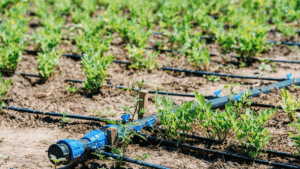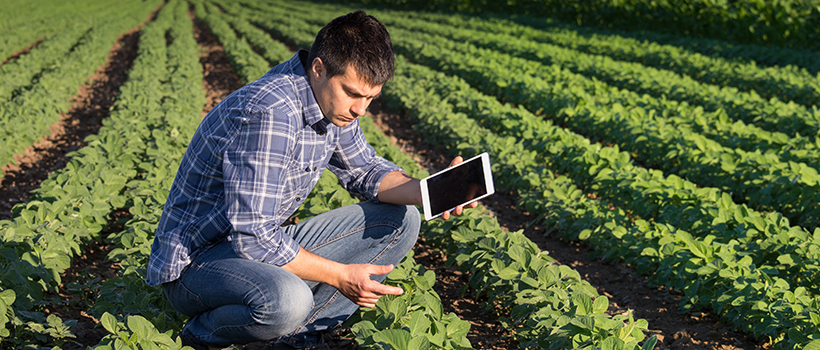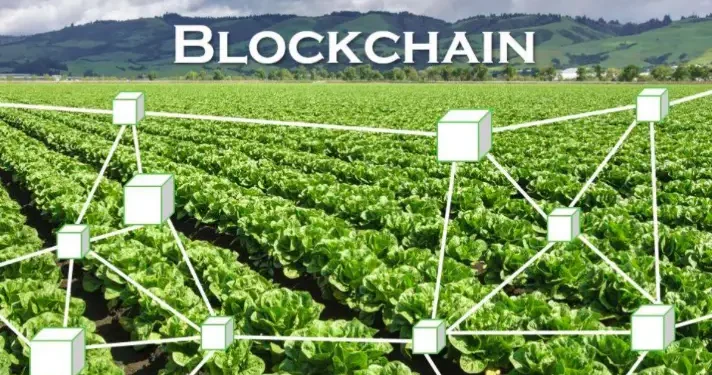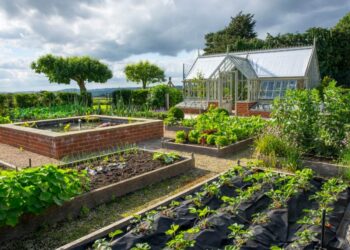In recent years, the use of blockchain technology has become increasingly prevalent across a range of industries, including agriculture and food systems. Blockchain technology is a secure and decentralized digital ledger that can be used to store, track, and verify transactions. This technology has the potential to transform the way that agricultural products are produced, distributed, and consumed, by providing transparency and efficiency throughout the supply chain.
The role of blockchain in agriculture and food systems

The report on the role of blockchain in agriculture and food systems can be expanded further by exploring the following aspects:
- Case studies and real-world examples of blockchain implementation in agriculture and food systems: This can include an in-depth analysis of successful blockchain projects in agriculture and food systems, and the impact that they have had on the industry. This section could also highlight the key challenges and opportunities faced by these projects, and the lessons that can be learned from their experiences.
- The role of blockchain in ensuring food security: Blockchain technology can play a key role in improving food security by providing a secure and transparent record of the entire food production process. This section could explore the potential benefits of blockchain for food security, including reducing food waste and contamination and increasing access to safe and nutritious food for all.
- The impact of blockchain on smallholder farmers: This section could examine the impact of blockchain on smallholder farmers, and how it can help to empower them by providing access to information and new market opportunities. It could also explore the challenges that smallholder farmers face in adopting and integrating blockchain into their operations, and the role that governments and other stakeholders can play in supporting them.
- The future of blockchain in agriculture and food systems: This section could explore the future of blockchain in agriculture and food systems, and how it will continue to evolve and impact the industry in the coming years. This could include an analysis of emerging trends and technologies, such as the use of blockchain for precision agriculture, and the potential for blockchain to help meet the growing demand for sustainable and traceable food products.
Overall, the report could be structured in a clear and concise manner, using a combination of data, case studies, and expert insights to provide a comprehensive overview of the role of blockchain in agriculture and food systems.
The report could also include recommendations for governments, industry stakeholders, and farmers, on how to maximize the benefits of blockchain technology and ensure its successful implementation in the agriculture and food systems sector.
The Benefits of Blockchain in Agriculture and Food Systems
- Transparency and Traceability: One of the key benefits of blockchain technology in agriculture and food systems is its ability to provide transparency and traceability throughout the supply chain. By using blockchain, growers, processors, and retailers can track the entire history of a product, from its origin to its final destination. This helps to ensure that products are safe and authentic, and it can also help to reduce the risk of fraud and counterfeiting.
- Improved Efficiency: Blockchain technology can also help to streamline and improve the efficiency of agricultural supply chains. For example, by digitizing the supply chain, growers and processors can more easily access information and data, which can help to reduce the time and costs associated with manual record-keeping and data management.
- Increased Sustainability: The use of blockchain technology in agriculture and food systems can also help to increase sustainability by reducing waste and optimizing resource use. For example, by tracking products from farm to table, blockchain can help to reduce food waste by ensuring that products are only grown and processed when they are needed, and by providing real-time data on crop yields and inventory levels.
- Enhanced Food Safety: Blockchain technology can also play a critical role in improving food safety by providing a secure and transparent record of the entire food production process. This helps to ensure that food products are safe and free from contamination, and it can also help to quickly identify and address any potential food safety issues.
Challenges and Opportunities for Blockchain in Agriculture and Food Systems

While the benefits of blockchain technology in agriculture and food systems are significant, there are also several challenges that must be addressed in order to fully realize its potential.
- Lack of Awareness: Despite its potential, blockchain technology is still not widely understood or adopted in the agriculture and food systems, and many stakeholders in the supply chain are unaware of its capabilities and benefits.
- Interoperability: Another challenge is the need for interoperability between different blockchain platforms and systems. In order for blockchain to be effective in agriculture and food systems, it must be able to integrate with existing systems and technologies and be accessible to all stakeholders in the supply chain.
- Regulation: There is also a need for clear and consistent regulation of blockchain technology in agriculture and food systems, in order to ensure that it is used in a safe, secure, and ethical manner.
Conclusion: The Future of Blockchain in Agriculture and Food Systems
Blockchain technology has the potential to revolutionize the way that agricultural products are produced, distributed, and consumed, by providing transparency and efficiency throughout the supply chain. However, in order for blockchain to be effective in agriculture and food systems, it must be widely adopted and integrated with existing systems and technologies, and it must be regulated in a clear and consistent manner.
As the technology continues to evolve, blockchain will play an increasingly important role in the agriculture and food systems, helping to ensure a more sustainable and efficient food supply, and providing greater transparency and traceability for consumers.
In conclusion, the use of blockchain technology in agriculture and food systems represents a critical step towards a more sustainable, efficient, and transparent food system, and it will play a major role in meeting the world’s growing











